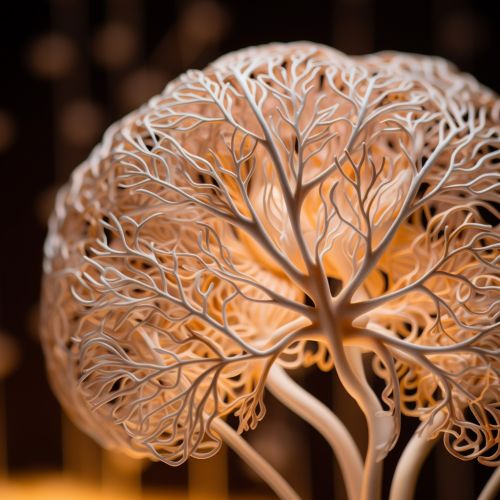Neurological injury
Introduction
A neurological injury is a broad term that refers to damage to the nervous system, which includes the brain, spinal cord, and peripheral nerves. These injuries can result from a variety of causes, including trauma, disease, and congenital disorders. They can lead to a wide range of symptoms and complications, depending on the severity and location of the injury.


Causes
Neurological injuries can be caused by a variety of factors, ranging from physical trauma to diseases and disorders. Some of the most common causes include:
- Traumatic brain injuries (TBIs): These are typically caused by a blow or jolt to the head, which can damage the brain. TBIs can range from mild concussions to severe brain damage.
- Strokes: A stroke occurs when blood flow to a part of the brain is cut off, usually due to a blood clot or burst blood vessel. This can cause brain cells to die, resulting in neurological damage.
- Spinal cord injuries: These can occur as a result of trauma, such as a fall or car accident, or diseases like polio or spina bifida. They can lead to paralysis and other neurological deficits.
- Neurodegenerative diseases: These are disorders that cause progressive damage to the nervous system over time. Examples include Alzheimer's disease, Parkinson's disease, and multiple sclerosis.
- Infections: Certain infections can cause neurological damage, such as meningitis, encephalitis, and certain parasitic diseases.
Symptoms
The symptoms of a neurological injury can vary widely, depending on the location and severity of the injury. However, some common symptoms include:
- Physical symptoms: These can include weakness or paralysis, loss of sensation, uncoordinated movements, and problems with balance.
- Cognitive symptoms: These can include problems with memory, attention, and problem-solving. In severe cases, a neurological injury can lead to a coma or persistent vegetative state.
- Emotional symptoms: These can include mood changes, such as depression or anxiety, as well as changes in personality.
- Sensory symptoms: These can include problems with vision, hearing, taste, smell, and touch.
Diagnosis
Diagnosing a neurological injury typically involves a combination of a physical examination, medical history, and diagnostic tests. These tests can include:
- Neuroimaging tests: These can include computed tomography (CT) scans, magnetic resonance imaging (MRI) scans, and positron emission tomography (PET) scans. These tests can help to identify the location and extent of the neurological injury.
- Electroencephalography (EEG): This test measures electrical activity in the brain and can help to identify seizures and other abnormalities.
- Lumbar puncture (spinal tap): This test involves taking a sample of cerebrospinal fluid, which can be analyzed for signs of infection, inflammation, and other abnormalities.
- Neuropsychological tests: These tests can help to assess cognitive function and identify specific areas of impairment.
Treatment
Treatment for a neurological injury depends on the cause, location, and severity of the injury. It often involves a multidisciplinary team of healthcare professionals, including neurologists, neurosurgeons, physiatrists, physical therapists, occupational therapists, and speech-language pathologists. Treatment options can include:
- Medications: These can include pain relievers, anti-inflammatory drugs, and medications to control symptoms such as seizures or muscle spasms.
- Surgery: In some cases, surgery may be needed to remove a tumor, repair a damaged area, or relieve pressure on the brain or spinal cord.
- Rehabilitation: This can include physical therapy, occupational therapy, and speech-language therapy. The goal of rehabilitation is to help the patient regain as much function as possible and improve their quality of life.
- Assistive devices: These can include wheelchairs, braces, and communication devices, which can help to improve mobility and independence.
Prognosis
The prognosis for a neurological injury depends on a variety of factors, including the cause, location, and severity of the injury, as well as the patient's age and overall health. In some cases, patients may recover fully or partially from their injury. In other cases, the injury may result in permanent disability or death.
Prevention
While not all neurological injuries can be prevented, there are steps that can be taken to reduce the risk. These include:
- Wearing a helmet when participating in activities that could result in a head injury, such as cycling or playing contact sports.
- Using seat belts and child safety seats in cars.
- Taking precautions to prevent falls, such as using handrails and removing tripping hazards.
- Managing chronic conditions that can increase the risk of a neurological injury, such as high blood pressure and diabetes.
- Getting vaccinated against diseases that can cause neurological damage, such as meningitis and encephalitis.
